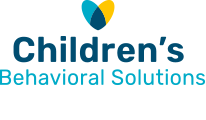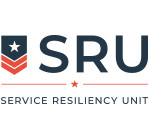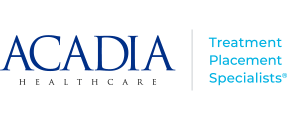With a dedication to ensuring that individuals receive the care they need at the level that is best for them, Acadia Healthcare offers intensive outpatient programs (IOPs) at many of its treatment facilities. These programs help people who are experiencing the effects of mental health disorders, behavioral health concerns, or addictions to transition back to their daily lives with the confidence they need to be successful in their recovery.
Understanding Intensive Outpatient Programs
If you or a loved one is struggling with the effects of mental illness or addiction, you might find the structured setting of an intensive outpatient program (IOP) beneficial. This treatment option provides individuals with a high level of care that is less intensive than partial hospitalization programming (PHP), inpatient treatment, or residential care, but a more structured therapeutic setting than a traditional outpatient setting.
The structure of intensive outpatient programs can vary from one treatment facility to the next, but IOPs typically include two to three hours of treatment services three to four days a week. When individuals enter into an IOP, they are provided with the specific times that the program meets so they can work their time in programming around their other daily responsibilities. Group therapy is typically the main treatment method, but other forms of care might be offered, such as individual, family, or experiential therapies.
Before treatment can start, the individual needs to undergo a full assessment, including a physical and psychological background evaluation that assesses how their symptoms have impacted their ability to function on a daily basis. The assessment is reviewed by clinical staff, who determine what the most appropriate level of care should be in order to best meet the individual’s needs. If it is determined that the individual might benefit from an IOP, the admissions process will begin.
Many of the treatment facilities in the Acadia Healthcare network offer intensive outpatient programs for individuals of all ages and genders who are in need of care to address mental health disorders, behavioral health concerns, and addiction challenges. Acadia Healthcare treatment facilities use evidence-based, innovative treatment services to provide individuals with the life-changing care that guides them in their path to healing.
Why Consider an Intensive Outpatient Program
People who might need a slightly more intensive and structured form of care typically benefit the most from an intensive outpatient program. If you or your loved one recently left inpatient treatment, a partial hospitalization program (PHP), or residential treatment, you might benefit from an intensive outpatient program rather than a traditional outpatient program. People who also have a co-occurring disorder or dual diagnosis might benefit from an IOP to help them better manage the effects of living with multiple disorders.
There are so many benefits to participating in an intensive outpatient program. IOPs allow people to access a higher level of treatment services while still maintaining a presence at school or work. You or your loved one can build a support community of peers who are on the same healing journey while still having the support of friends and family when you or your loved one leave treatment.
Intensive outpatient programming also allows individuals to practice their newfound symptom-management skills in real-world settings and then take any questions or concerns they might have right back to the therapy setting. This creates a safe space to learn how to manage your symptoms in a supportive, judgment-free environment. IOPs give individuals the privacy, support, and flexibility to learn how to manage their mental health or addiction challenges so they can live with their disorders — not suffer from them.
Types of Treatment Services Offered Through Acadia Healthcare
When you or a loved one participates in an intensive outpatient program (IOP), the treatment facility typically creates an individualized treatment plan tailored to meet your unique needs so your treatment goals can be met. These individualized treatment plans include a variety of therapeutic interventions, which might include the following types of treatment services:
Medication management: For some people, medications such as antidepressants or mood stabilizers might complement therapeutic interventions because they can alleviate the physical and psychological distress that certain symptoms elicit. All medications are prescribed by a licensed psychiatrist, and follow-up meetings with the psychiatrist are held depending on each person’s individual needs.
Group therapy: Group therapy sessions are frequently the main type of treatment used in Acadia Healthcare’s intensive outpatient programs. The number and types of groups that meet vary from facility to facility based on the needs of the participants. Group therapy sessions are led by professionals who facilitate discussion topics that are relevant to the needs of the individuals who are taking part in the program. Sessions provide individuals with education on the specific disorders they are learning to manage and are a time for them to exchange support with peers who are also participating in the group. This peer interaction can help individuals understand they are not alone in the struggles that they are facing, which can often promote acceptance and healing.
Individual therapy: Individual therapy sessions are a time for individuals to meet one-on-one with a therapist in a confidential setting. Individuals can work with their therapist to process their experiences in treatment, address any concerns that might arise, ask any questions they might have, receive ongoing support, and celebrate successes as they happen.
Family therapy: In most cases, including an individual’s family members in their treatment process can be incredibly beneficial. Family members can learn about their loved one’s disorder, what their loved one has been going through, and ways they can support their loved one in their healing and recovery. The family can also work together to heal from any damage that might have resulted from the effects of the individual’s mental health, behavioral health, or addiction challenges. As with individual therapy, family therapy is typically held depending on the person’s individual needs.
Continuing care: At Acadia Healthcare, we recognize that individuals must be provided with a full spectrum of care options in order to fully transition back into their everyday lives. For this reason, the staff members at our treatment facilities begin working on discharge plans from the moment that an individual enters treatment. Acadia Healthcare’s treatment facilities ensure each individual has a plan in place so that they can receive the ongoing support they need once they have finished IOP.
Learn More
If you or a loved one is in need of support to address mental health concerns, behavioral health issues, or addiction challenges, do not hesitate to contact one of Acadia Healthcare’s premier treatment facilities. Knowledgeable and compassionate staff members are available to assist you or your loved one in choosing the right program to meet all of your needs. By receiving treatment at one of Acadia’s highly respected treatment facilities, healing and lasting recovery can be within your reach.






